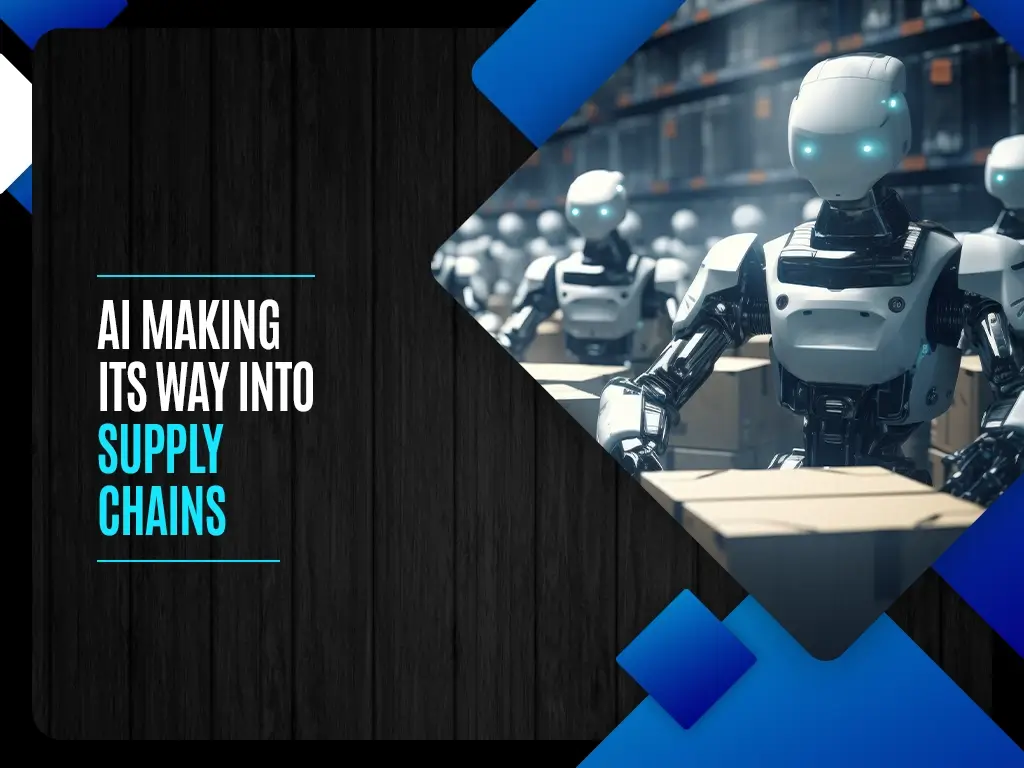AI making its way into Supply chains

2nd April, New Jersey: Supply chains in the world are going through the difficulties, e.g. the notions of port congestion or material shortage impedes the process and unpredictable weather substantially complicates the supply chains deployment. As competition stiffens in this wide area, companies now resort to artificial intelligence (AI) for solutions.
Cutting Costs and Boosting Efficiency
Cost savings and efficiency improvements constitute just one factor in the adoption of AI in the supply chains, with they being the main ones. AI tools process of huge data on stocks and plans are tailor-made for logistics and route optimization.
To illustrate this, an intelligence system can detect occurrences of demand fluctuations and suggest what adjustments should be made to maintain constant stock levels, which subsequently will prevent stockouts and lower the need for emergency measures. Further, AI helps to interpret earlier data and occurrences of traffic, allowing them to pinpoint the most effective delivery routes with reduced fuel consumption and cost of transportation.
A. Mars: A Case Study in AI Efficiency
Mars, the global food processor, provides a real-life example. Used an AI solution that analyzes information from different sources including climate predictions, production programs and transportation details. Thus, mars can have prior knowledge of any disruptions that might occur in their supply chain through this solution.
The real-world example comes from Mars, the world’s largest food processing company. Mars has introduced an AI-driven system for gathering data from multiple sources such as weather forecasts, manufacturing schedules, or shipping information. This allows Mars to foresee potential disturbances and adapt its supply chain accordingly.
It is worth noting that the results are impressive. Supply chain management tasks related to manual operations have been cut by 80% according to reports from Mars freeing employees for strategic initiatives. Furthermore Artificial Intelligence has allowed mars to optimize their shipping routes thus saving on costs.
The outcome is remarkable. According to Mars’ report it has reduced tedious supply chain management by 80%, which releases more manpower for strategic moves. Also through AI technology, Mars has optimised shipping ways that have led to significant cost savings.
Beyond Efficiency: AI for Proactive Risk Management
While major benefits of cost savings and efficiency gains come first, AI in supply chains is more than simple optimization. AI tools can be employed to scrutinize historical data for any early signs of disruptions occurring. This enables firms to proactively do things like changing the suppliers or redirecting shipments.
AI can for example, monitor weather patterns and predict potential delays due to storms or other natural disasters. As such, companies will have information upon which they can base adjustments on their logistics plans or secure alternative shipping routes aimed at minimizing interruptions.
Challenges and Considerations
However, there are challenges for a bright future of AI in supply chain. For the success of AI implementation it is critical to assess the data quality and quantity available. The adage “garbage in, garbage out” applies here; if inaccurate or incomplete data is fed into the AI system, then the output will be unreliable. Furthermore, organizations have to put in place appropriate infrastructure and expertise that can enable effective integration of AI tools.
The Future of AI in Supply Chains
It is true that AI is still in its infancy in the world of supply chains, but the truth remains that it has the potential to cause a lot of disturbance and good as well. More innovative applications are expected as AI technology progresses and data quality improves. It is very clear that AI can change supply chain management for organizations by automating cumbersome processes and forecasting/avoiding disruptions.
This news is sourced.

